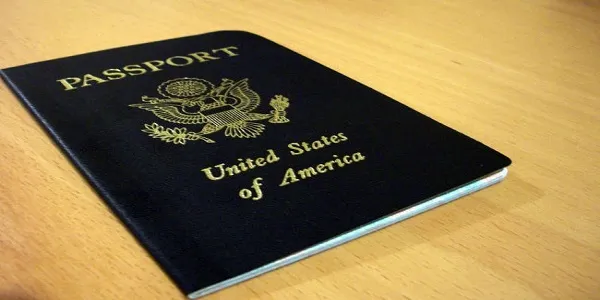Attention all travelers heading to India! Have you applied for an Indian eVisa? If so, do you know when it expires? The expiration date of your eVisa is crucial and can affect your travel plans. In this blog post, we will discuss everything you need to know about the Indian eVisa expiry date before packing your bags and boarding that plane. So, let’s dive in and make sure your trip to India goes smoothly!
Introduction to Indian eVisa
An Indian eVisa is an official document issued by the Government of India that allows foreign nationals to enter and travel within India for business, tourism, or medical purposes. The eVisa is valid for 60 days from the date of arrival in India and can be used for multiple entries into the country. INDIAN VISA FOR NETHERLANDS CITIZENS
If you are planning to travel to India, it is important to know the Indian eVisa expiration date as well as the requirements for renewing or extending your visa. Here is everything you need to know about the Indian eVisa expiration date and how to extend or renew your visa:
The Indian eVisa expires 60 days after the date of arrival in India.
You can apply for a renewal or extension of your Indian eVisa up to 30 days before the expiration date.
To renew or extend your visa, you will need to login to your account on the Government of India’s e Visa website and submit a new application.
Once your application has been approved, you will receive a new e Visa with a new expiration date.
It is important to note that you cannot extend your visa beyond its original expiration date. If you need to stay in India longer than 60 days, you will need to apply for a new visa before your current one expires.
Requirements for an Indian eVisa
If you’re planning to travel to India, you’ll need to obtain an eVisa before your trip. Here’s what you need to know about the requirements for an Indian eVisa:
1. You must have a valid passport. Your passport must have at least six months of remaining validity and two blank pages for visa stamps.
2. You must have a digital passport photo. This photo must be taken within the last six months and meet all other requirements specified by the Indian government.
3. You must have proof of onward travel out of India. This can be in the form of a return ticket or an onward ticket to another destination.
4. You must have proof of sufficient funds for your stay in India. This can be in the form of bank statements or credit card statements showing that you have enough money to cover your expenses during your stay. INDIAN EVISA EXPIRY DATE
5. You must have a valid email address where your eVisa will be sent. Make sure to provide a working email address when you apply for your visa so that you can receive your visa promptly and without any issues.
Advantages of Applying for an Indian eVisa
There are many advantages to applying for an Indian eVisa. Perhaps the most obvious advantage is that it allows you to travel to India without having to obtain a physical visa. This can save you time and money, as well as avoid any potential problems that could occur if you were to lose your passport or visa while traveling.
Another advantage of the Indian eVisa is that it is valid for multiple entries into the country. This means that if you plan on making multiple trips to India within a certain period of time, you will not need to apply for a new visa each time. This can save you both time and money, as well as hassle and worry.
The Indian eVisa is also valid for a longer period of time than a traditional visa. Traditional visas typically only allow travelers to stay in the country for up to six months at a time, whereas the Indian eVisa allows travelers to stay for up to one year. This can be extremely beneficial if you are planning on staying in India for an extended period of time, such as for business or pleasure.
How to Apply for an Indian eVisa
There are a few things you need to know before applying for an Indian eVisa. The first is the expiry date. Your eVisa will be valid for 60 days from the date of issue, and you can enter India at any time within that period. However, you must apply for your eVisa at least 4 days before your planned trip.
To apply for an Indian eVisa, you will need to fill out an online application form. You will need to provide some personal information, as well as your travel plans and itinerary. Once you have submitted your application, you will need to pay the visa fee using a credit or debit card. Once your payment has been processed, you will receive your eVisa via email.
When travelling to India, make sure to bring a printed copy of your eVisa with you, as well as your passport. You will need to present both of these documents at immigration when arriving in India.
Understanding the Expiry Date of an Indian eVisa
When applying for an Indian eVisa, it is important to be aware of the expiration date. The expiry date is usually one year from the date of issue, but this can vary depending on the type of visa and the country of origin. For example, a tourist visa may only be valid for six months. It is also important to note that the expiration date is not the same as the validity period, which is the length of time that you are allowed to stay in India. The expiry date simply means that your visa will no longer be valid after that date and you will need to reapply if you wish to continue traveling to India
What to Do if Your Indian eVisa Has Expired?
If you arrive in India with an expired eVisa, you will be required to apply for a new visa at the nearest Indian Visa Application Centre (IVAC) or Indian mission. This can be done either before or after arrival in India.
If you are applying for a new visa before arrival, you must submit your expired eVisa along with your new application. If you are applying for a new visa after arrival in India, you must submit your expired eVisa along with your new application and a copy of your passport bio-data page and latest entry stamp.
The processing time for a new visa application is usually 5 working days, but this may vary depending on the IVAC or mission where you apply.
Tips for Renewing or Extending Your Indian Visa
If your Indian eVisa is about to expire or has already expired, don’t worry – you can easily renew or extend it. Here are a few tips to help you through the process:
1. Start by logging into your account on the official Indian eVisa website. From there, you’ll be able to access the application for renewal or extension.
2. Make sure that you have all of the required documents handy – including your passport, a recent photo, and any other supporting materials that may be requested.
3. Once you’ve submitted your application, you’ll need to pay the applicable fees. You can do this online using a credit or debit card.
4. Once your payment has been processed, your new eVisa will be sent to you electronically. You should print it out and keep it with your passport when traveling to India.
Conclusion
We hope that this article has helped you understand everything you need to know before traveling with an Indian eVisa. Knowing when your visa will expire is essential, so be sure to double check the requirements and make sure you’re aware of any changes in policy. With a little preparation and research, your trip to India can be seamless and trouble-free!


